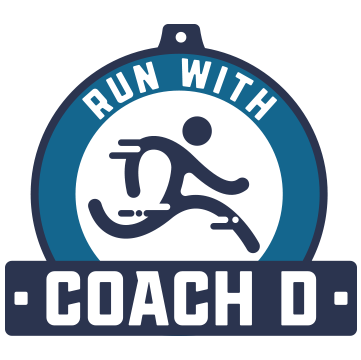How to Boost your Confidence and Stay Engaged in Training
Hi team! I hope you’ve had a strong spring season of racing and lots of fun miles. As we get into summer and make our transition to the next few months of training for fall races, I want to bring focus to our mental game.
Just like our physical training, it’s vital to train your mental game to get the most out of your training and enjoyment of it. There are times when I talk to my athletes who are crushing it in workouts, but feel completely unable to hit their goal times or finish the race they’ve worked so hard for. Most of the time they end up doing well, but sometimes they fall short, even though they’re physically more than capable.
Our mind is a powerful muscle, but if it’s not trained to help you it will hinder you. So let’s talk about how build your confidence to match your ability (and then some)
Negative thoughts and self doubts are a normal part of training; even the best in the world feel what you feel at times. Fear of failure can keep you motivated to stay on task as you work towards your goals. But when those fears consistently outweigh your positive thoughts of success, maybe it’s time to work on your confidence. There are lots of ways to do this, but a few tried and tested exercises I like and use could offer a good start…
Give yourself a pep talk
Boost your confidence by being kind to yourself. Remember the little positive moments of your training. If you hit paces on your workout, give yourself some praise for it. If you feel great after a hard effort, congratulate how well you did and embrace how that feels. Take a day to appreciate the perfect easy run you had in the morning. All these little victories lead to a growing foundation of confidence. Then when you have a BIG breakthrough in practice or a race, document it: write it down in your training log with lots of accolades, put your medal up where you can see it, tell your loved ones. Bottom line is to embrace it.
Mental imagery
Before tough workouts or races imagine everything going well from your perspective. Imagine the first few miles and how you’ll feel, picture your watch hitting the goal pace, see yourself crossing the finish line with your goal time on the clock. Now also picture your race or workout not starting well, see and feel the worst case scenario happening in your head. Imagine how you’ll respond to get back on track and into the race again. Picturing the good and the bad of the challenge ahead can help you feel more prepared for it while also limiting thoughts of anxiety. This is a great exercise to do once a week during your training.
Positive support
Surround yourself with positive people. Like your coach, or your parents, spouse, friends, etc. I’m not saying to just hang with YES PEOPLE who tell you all good all the time. But try and find people you trust to help keep a positive perspective on your training and fitness. We tend to be more negative to ourselves than anyone else, so having a few people to keep perspective can be really helpful; especially as training gets tougher.
Confidence isn’t a coin flip, it’s a buildable and sturdy attribute
Understand that you’re not a prisoner to your confidence. It’s not a flip of a coin of feeling good or bad. This is a solid attribute that you can develop through exercises and self care. That idea alone can be empowering because it gives you the power to make a change.
I want to make it clear, if you’re constantly feeling down and out about yourself and that extends outside of training, you should consider working with a professional counselor or therapist. Sometimes our thoughts and feelings are a product of something more than external; like bad workouts or off paces. Working with a professional can be life changing. Take care of yourself first, then come back to running; it’ll always be there for you.
I hope this blog can help you strengthen your confidence and find more enjoyment in your training, but I also hope it strengthens your resilience to setbacks and failures. Running, like life, isn’t all wins and personal bests; it’s a hilly course of highs and lows. The more we can stay positive or even about our experiences in training, the more consistent and happy we can be during it.

